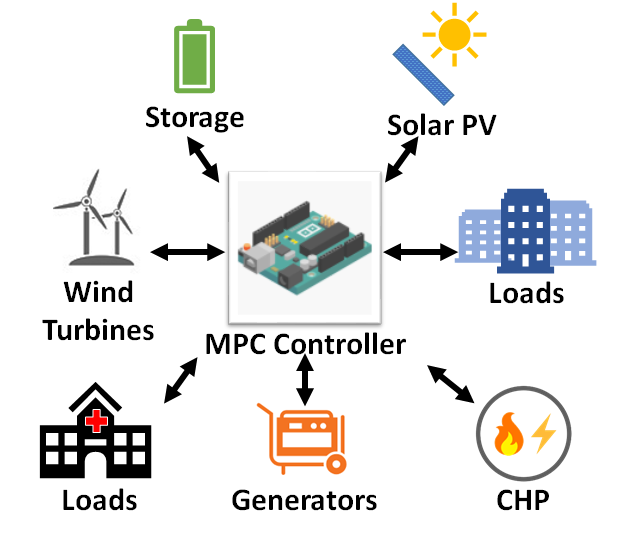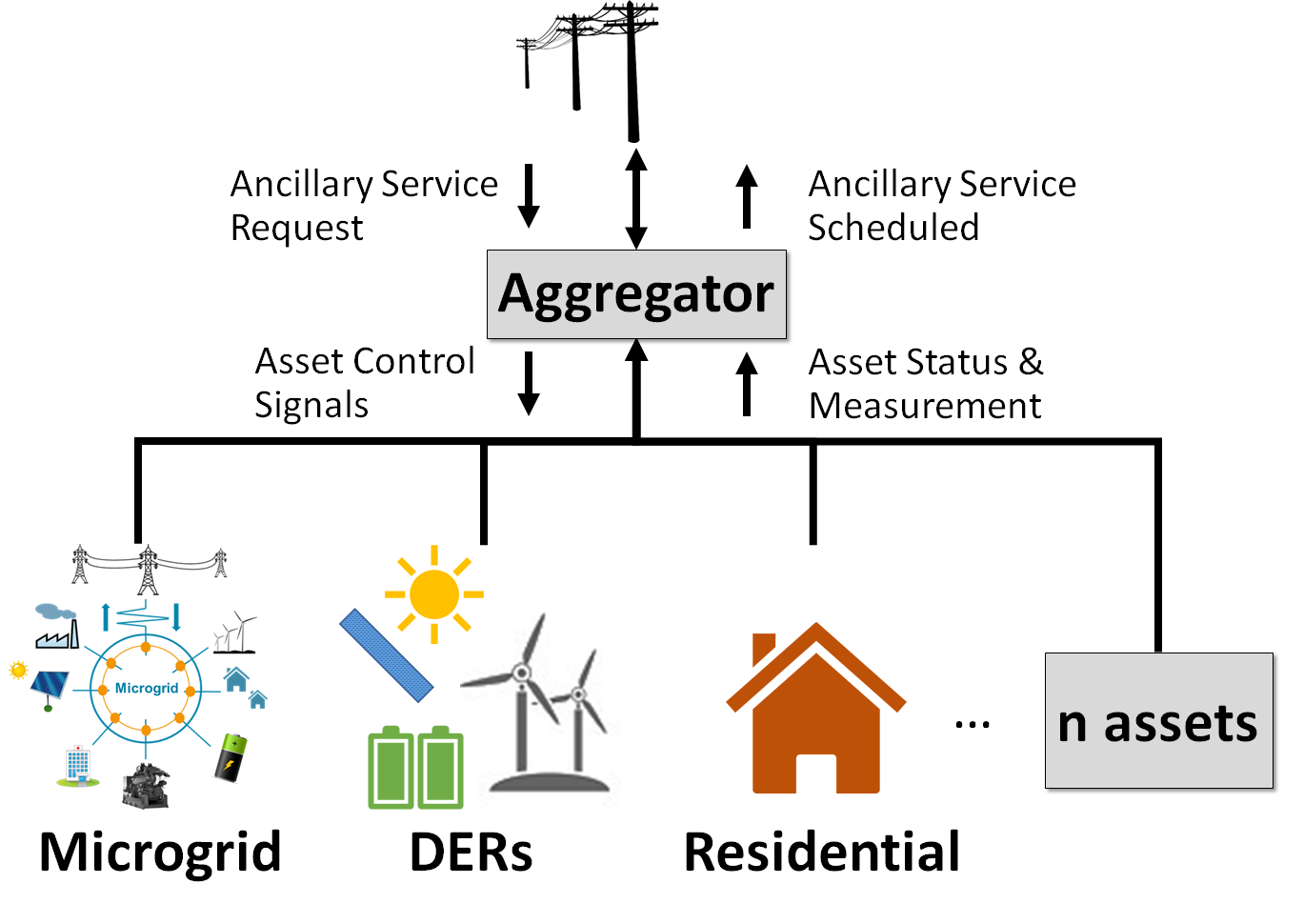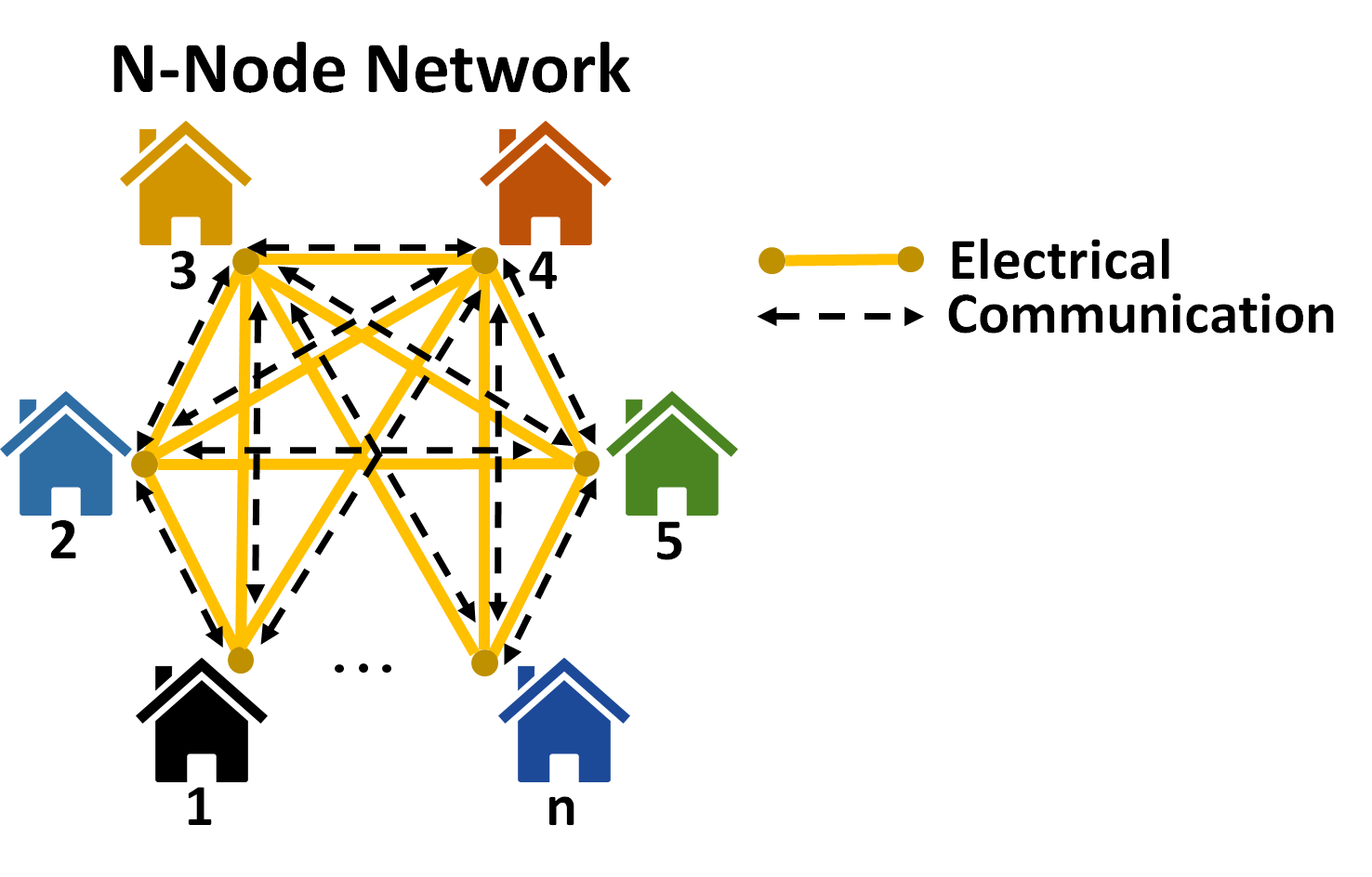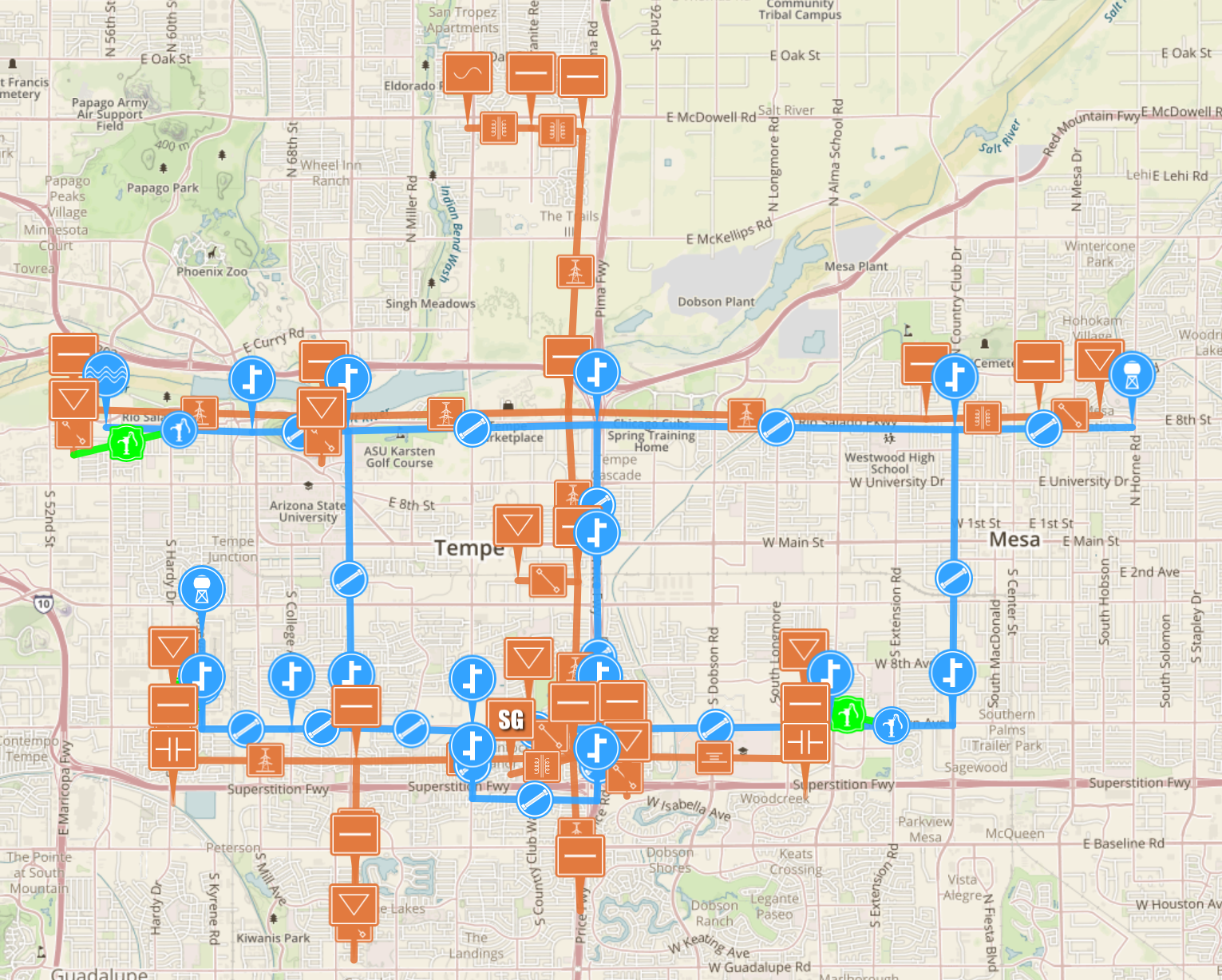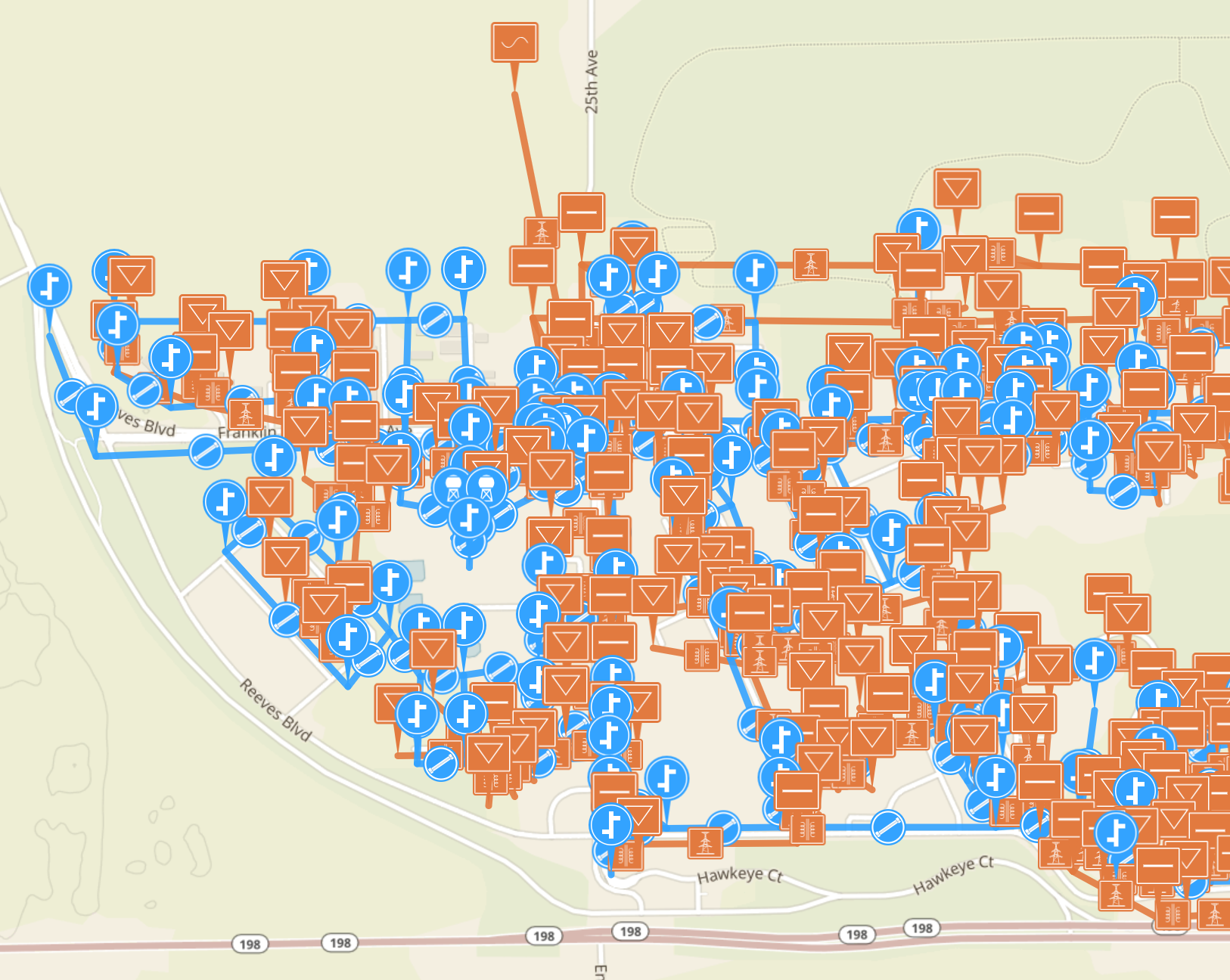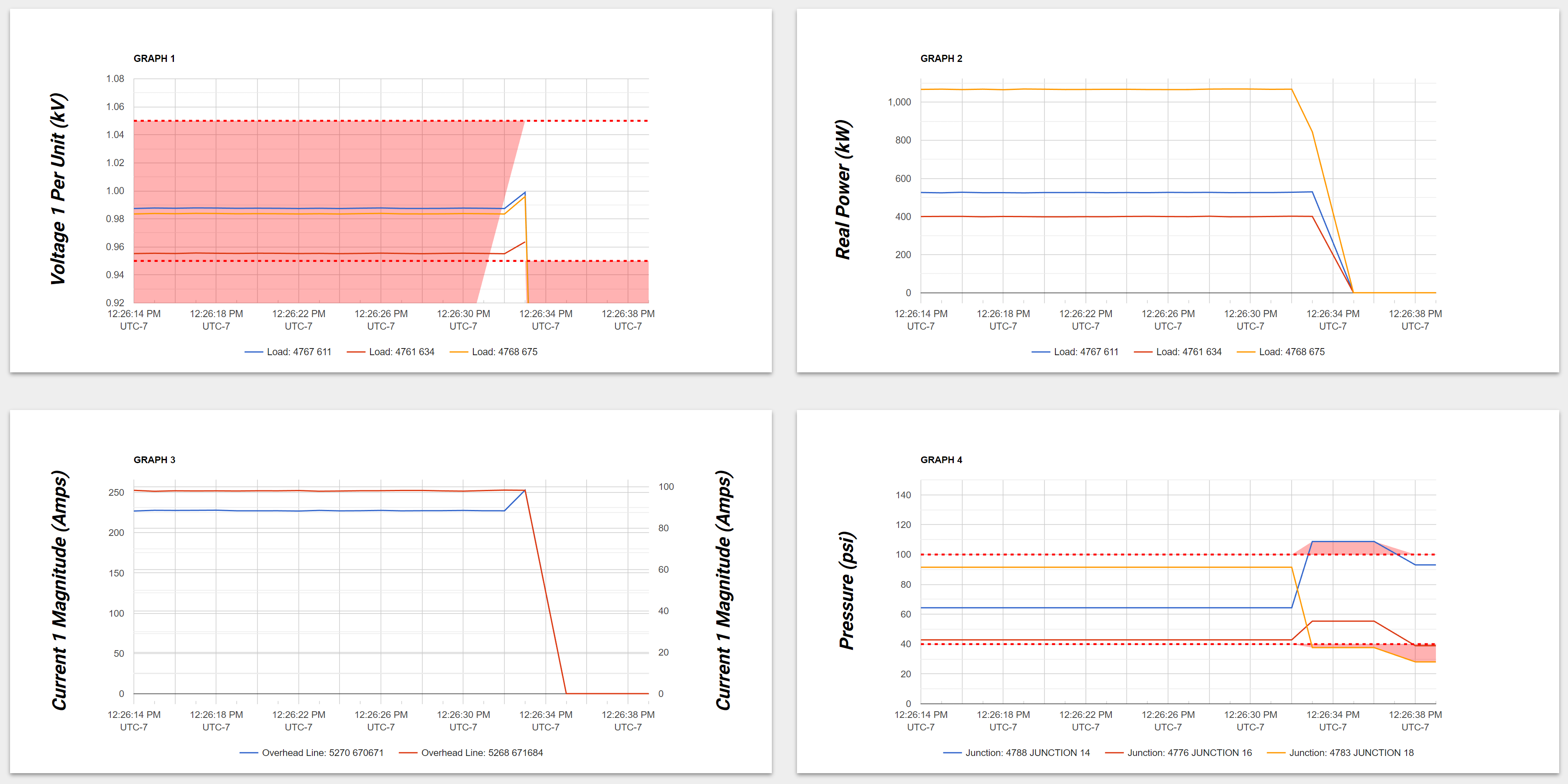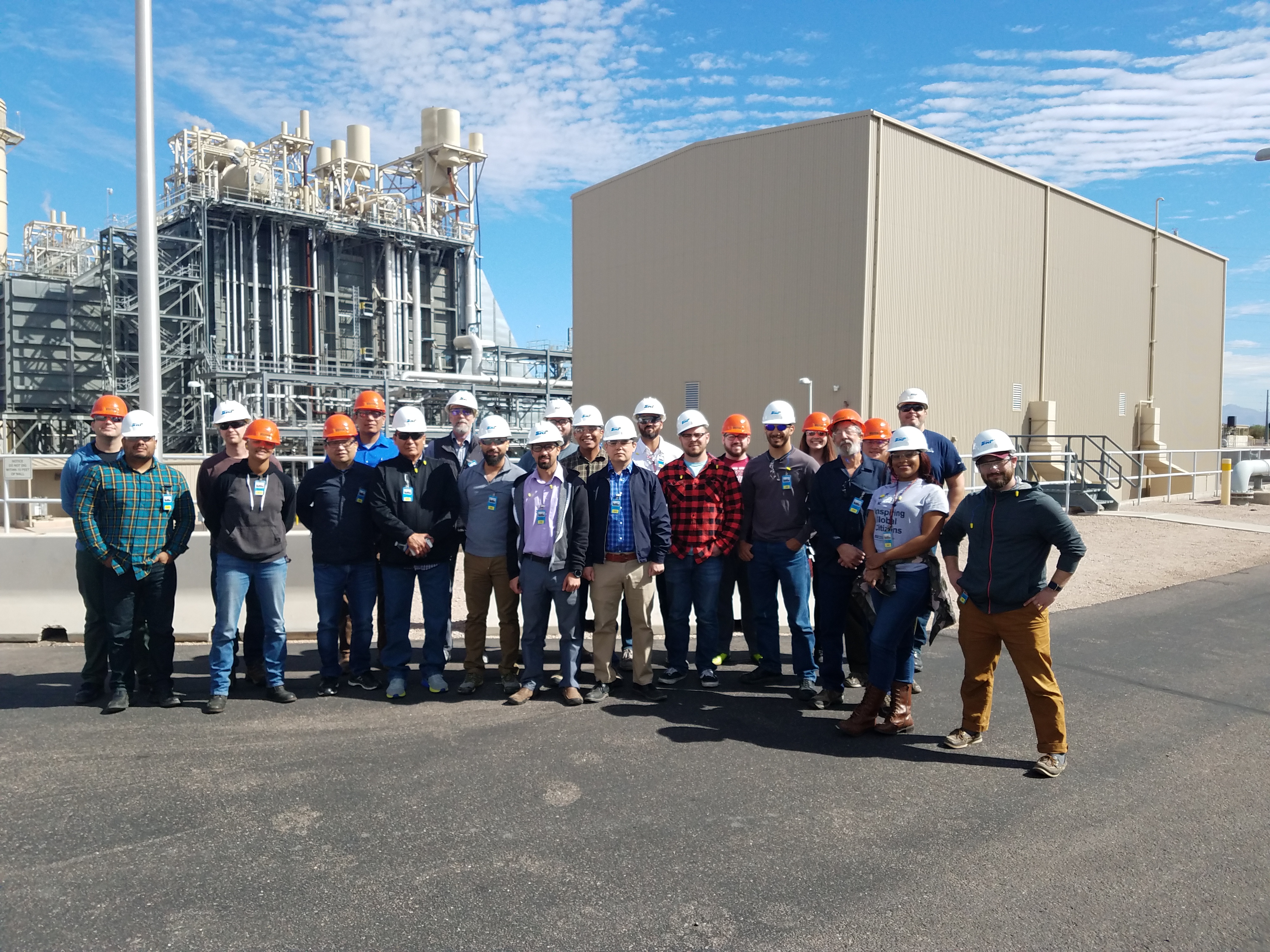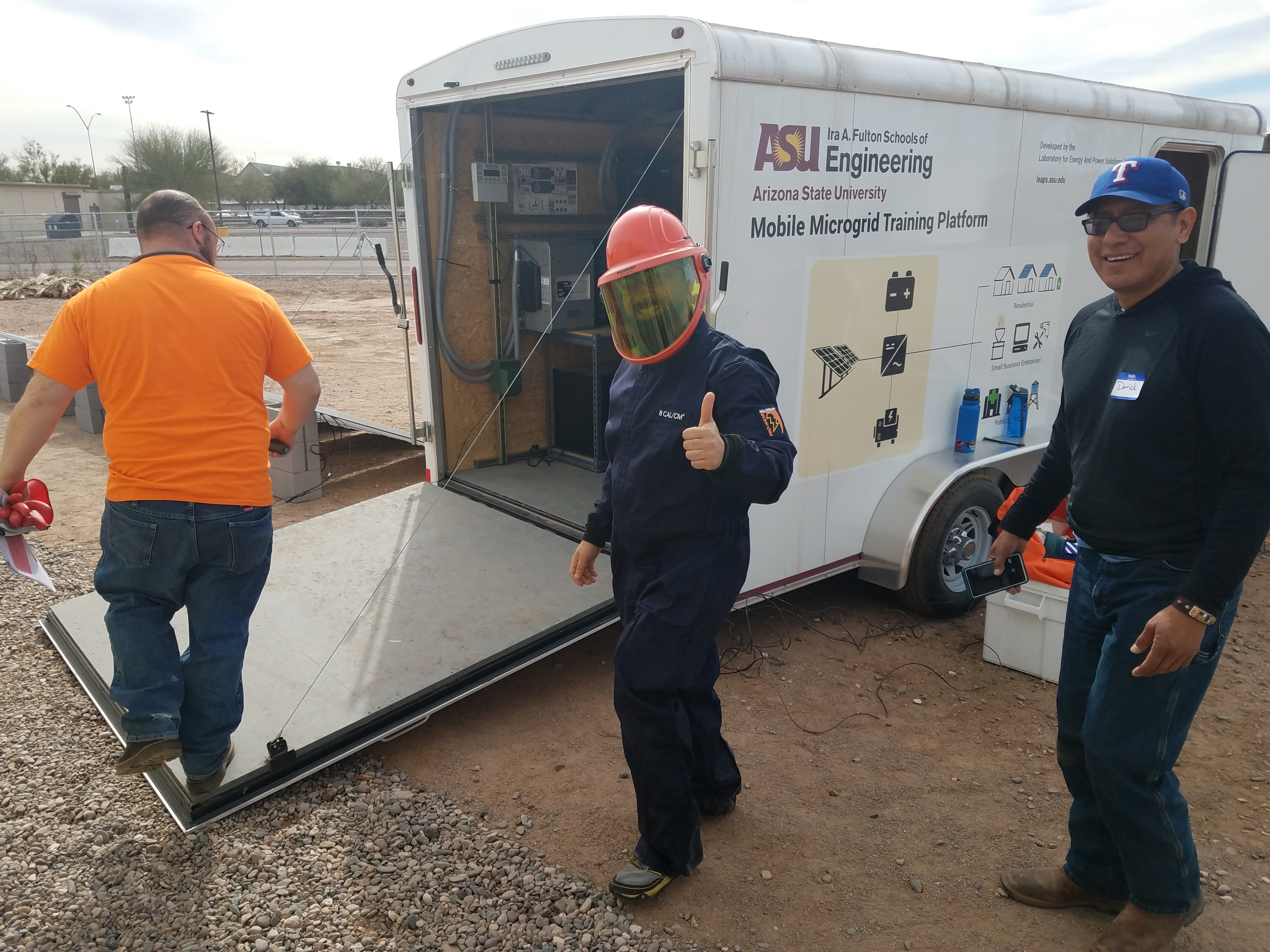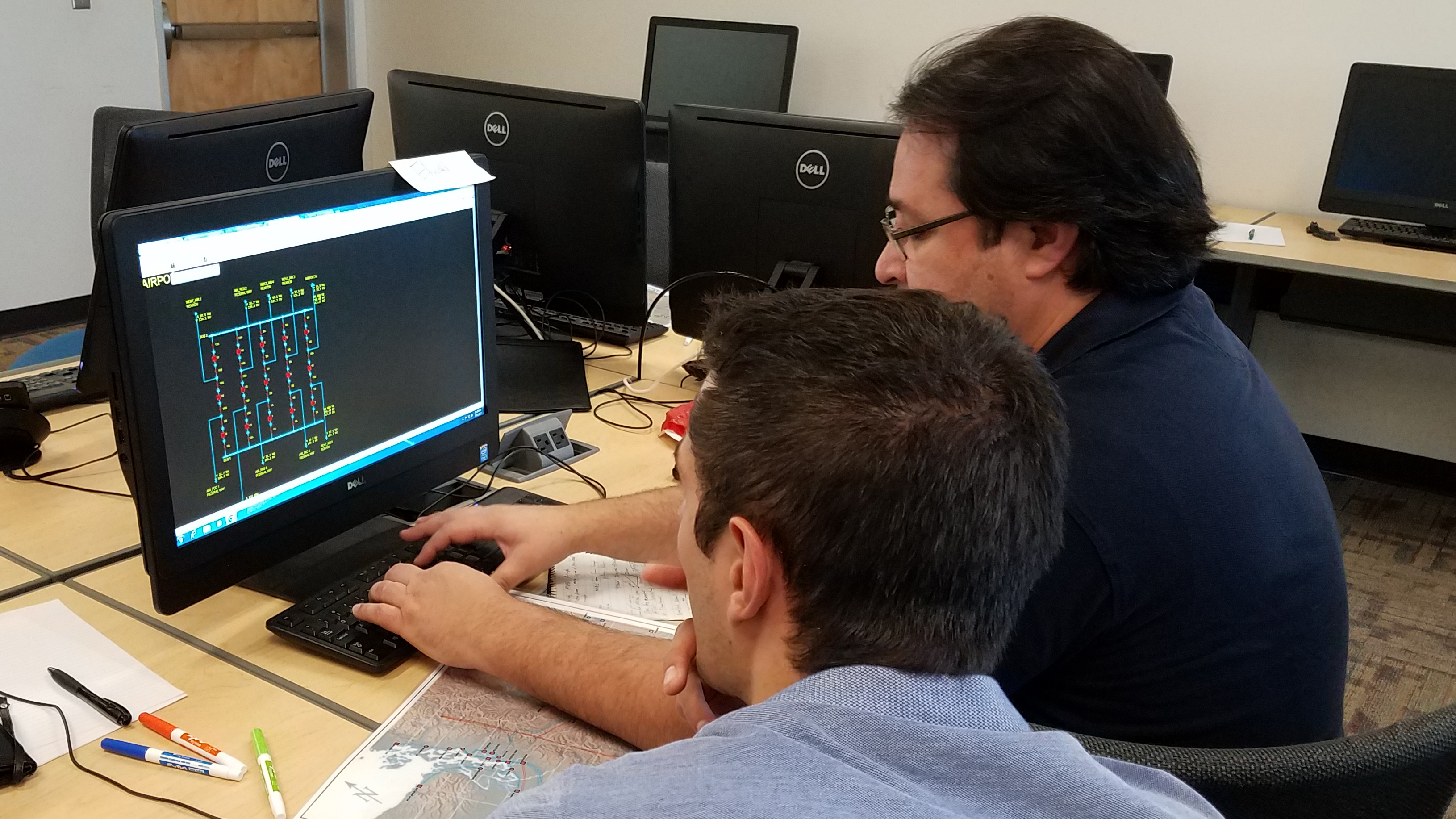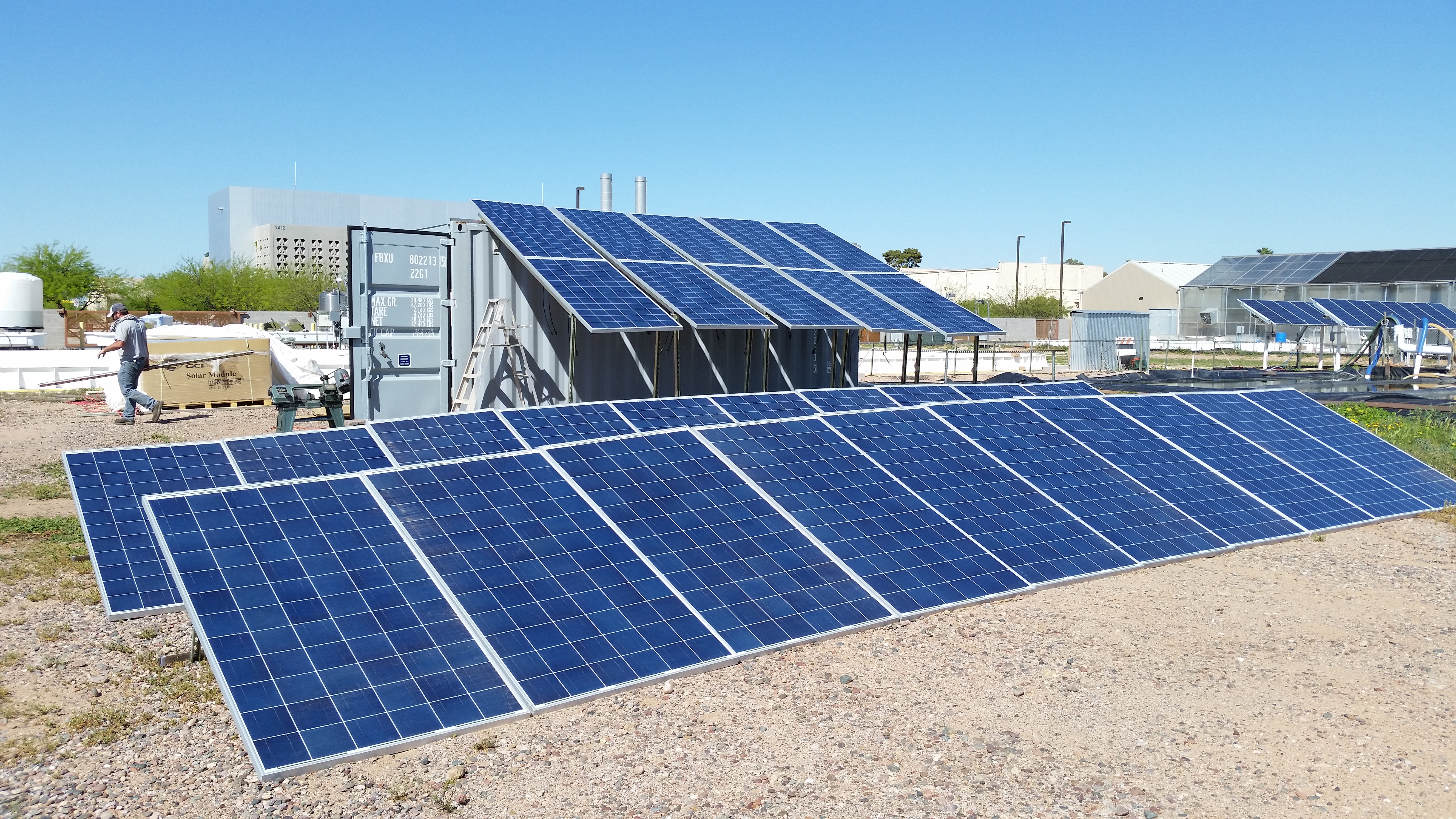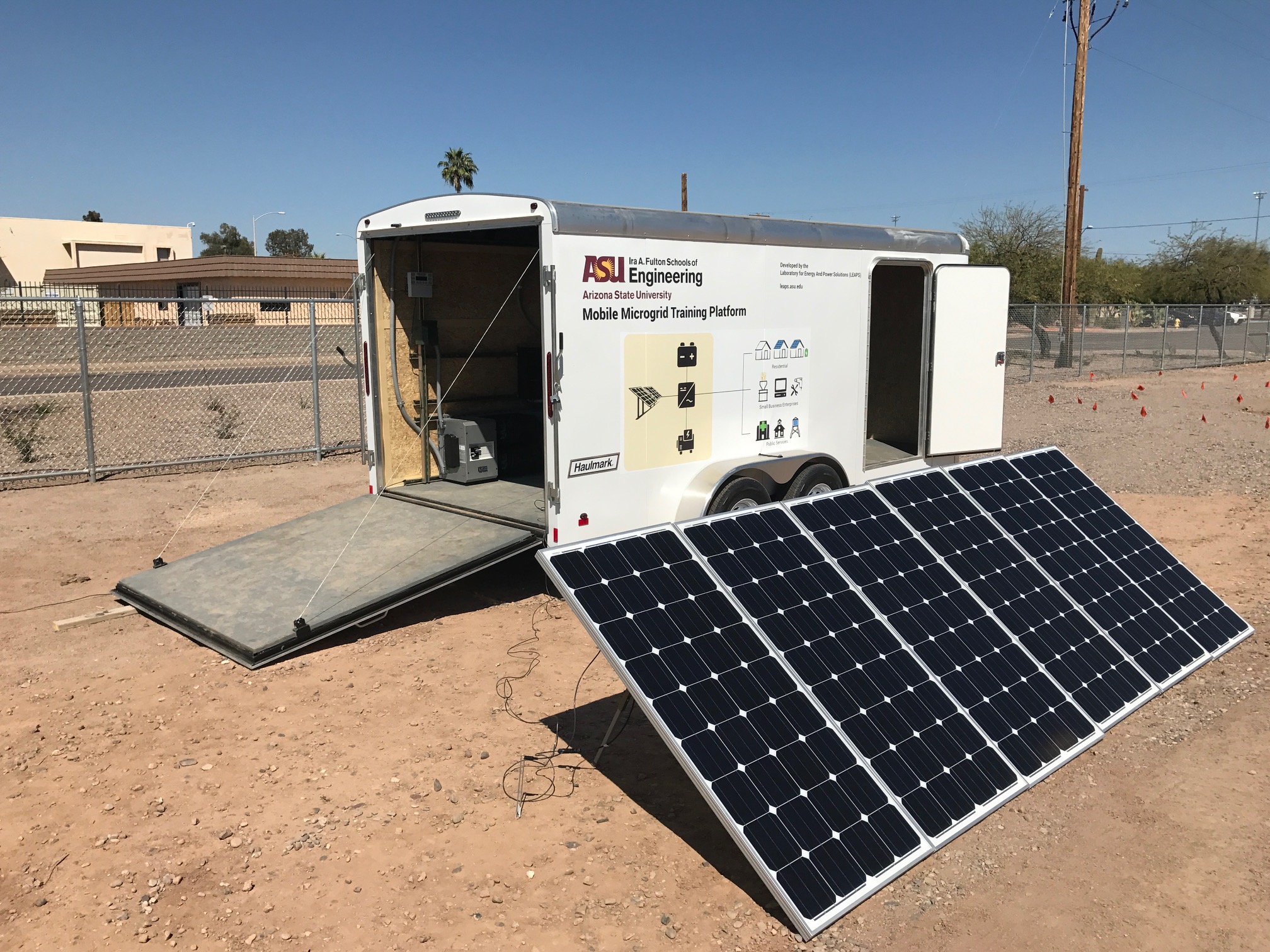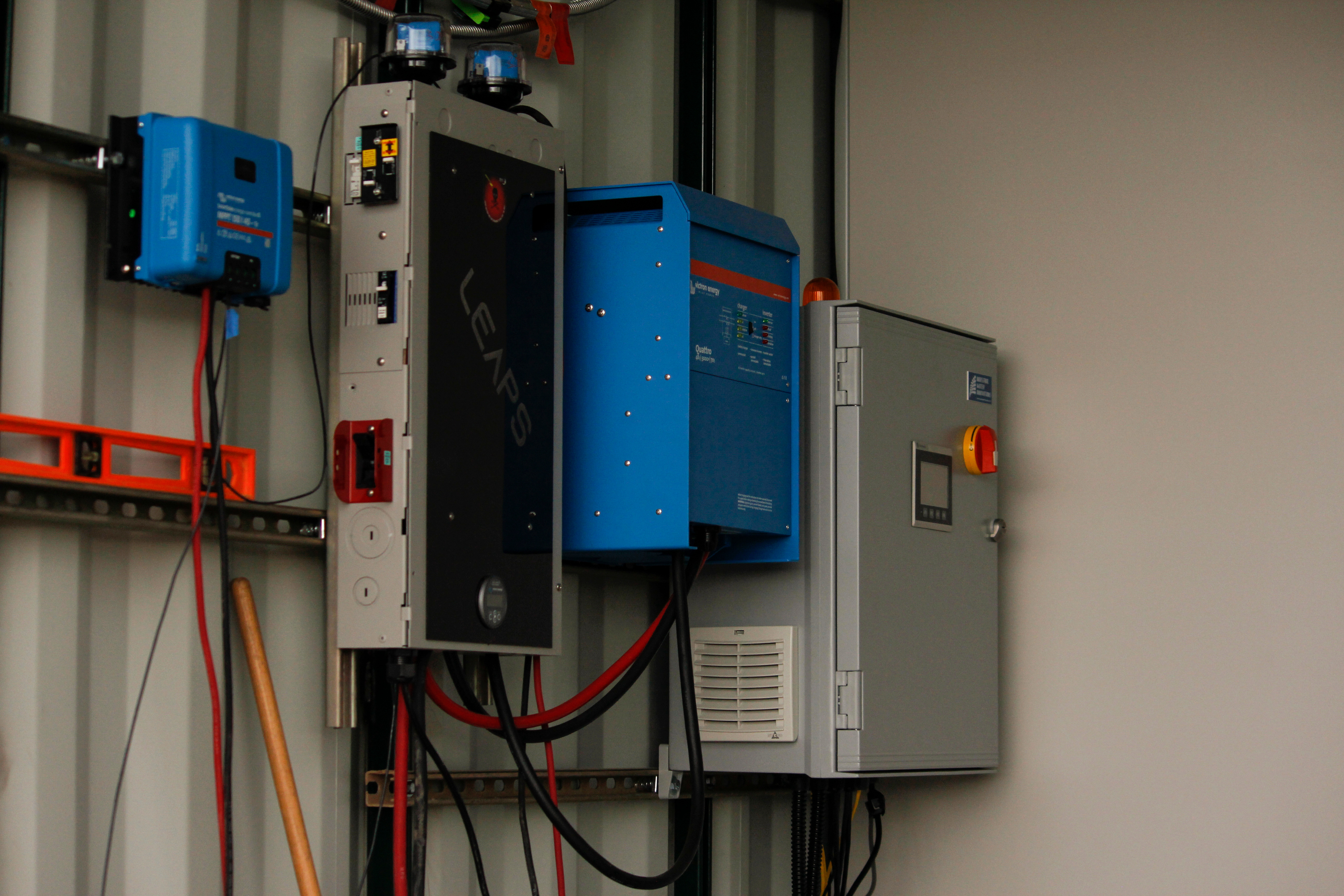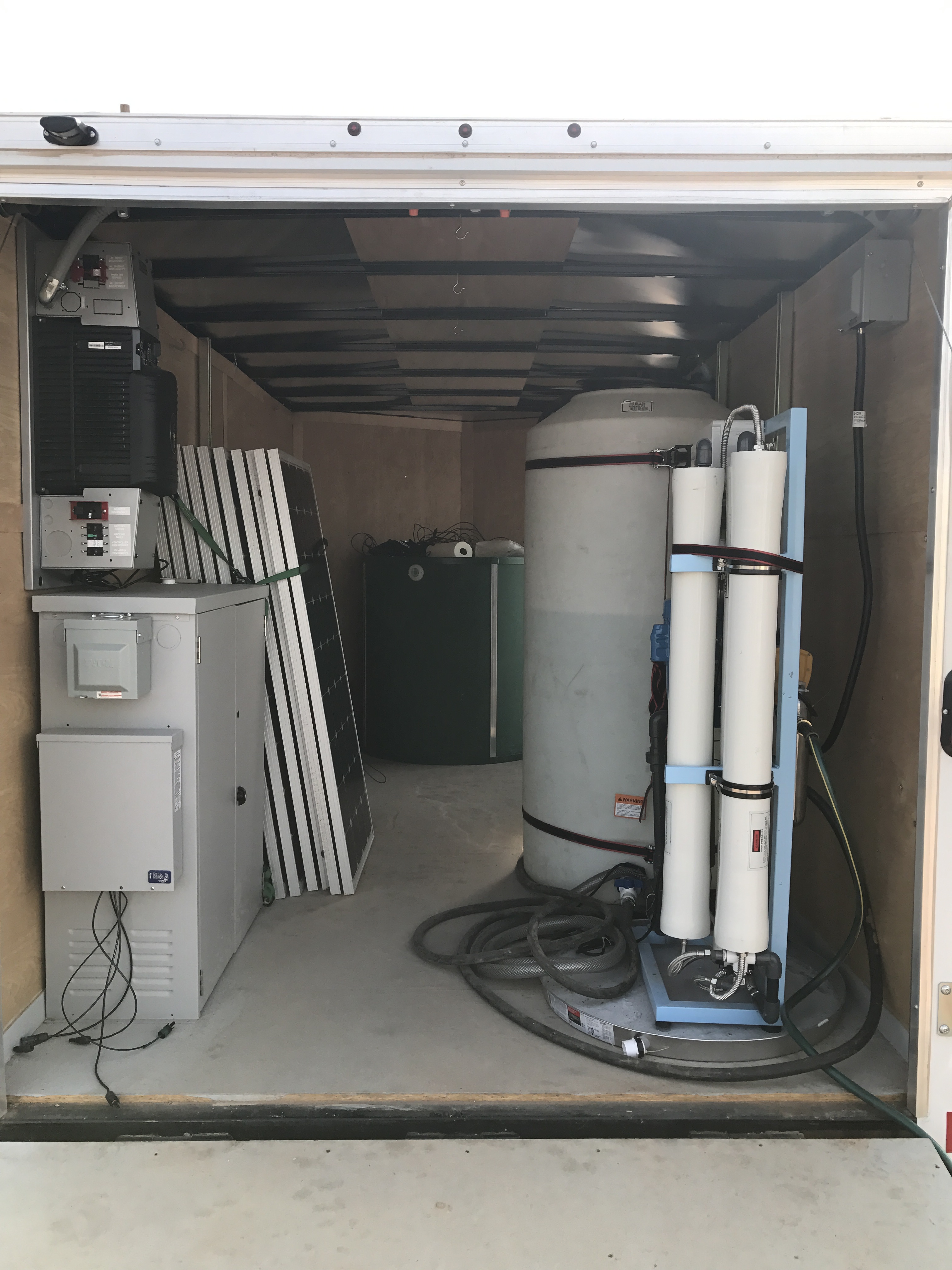Research
LEAPS students and staff conduct research within four primary cohorts:

Grid Modernization
Grid modernization creates control strategies for the seamless integration of energy management systems, microgrids, and distributed energy resources into traditional grid systems. Control algorithms include model predictive control, aggregation, and self-organization to enable coordination between assets while remaining generalizable and scalable for use in systems of any size (kW, MW, or GW). Control objectives include cost savings, reliability, resilience, maximizing use of renewables, and more.
This flexible control infrastructure allows vendor-agnostic machine-to-machine communication to enable plug-and-play capability of assets and enabling controls. Control techniques are implemented and tested in the Grid Modernization and Microgrid Test Bed. Over 30 types of energy assets are available including off-the-shelf components and customized power electronics.

Resilient Infrastructure
Resilient infrastructure is facing increased vulnerability and risk to failure from natural disasters, cyber attacks, and kinetic strikes. To reduce incidence of cascading and catastrophic failures, planners and operators must be able to test network design configurations and operating strategies of both singular infrastructures (power, water, cyber, roads, etc.) and interconnections to other coupled infrastructure.
The Resilient Infrastructure Simulation Environment (RISE) was developed for research, planning, real-time operation, and training for management of complex, interdependent infrastructure processes and systems. RISE can be used to identify vulnerabilities, develop strategies for response to stressors, and evaluate and compare costs and benefits of system expansion, maintenance, and replacement.

Resilient Infrastructure
Resilient infrastructure is facing increased vulnerability and risk to failure from natural disasters, cyber attacks, and kinetic strikes. To reduce incidence of cascading and catastrophic failures, planners and operators must be able to test network design configurations and operating strategies of both singular infrastructures (power, water, cyber, roads, etc.) and interconnections to other coupled infrastructure.
The Resilient Infrastructure Simulation Environment (RISE) was developed for research, planning, real-time operation, and training for management of complex, interdependent infrastructure processes and systems. RISE can be used to identify vulnerabilities, develop strategies for response to stressors, and evaluate and compare costs and benefits of system expansion, maintenance, and replacement.

Workforce Development
Over 300 hours of training is available in renewables, microgrids, and grid modernization topics. This is delivered through online education, as concept-based lessons in a classroom setting, and hands-on through interactive simulators and physical hardware present at ASU or off-site through extension services. The 11 standard programs and customized offerings provide opportunities to rapidly train new personnel or provide continued education of managers, engineers, installers, operators, and technicians. One program is the Microgrid Boot Camp that offers an all-inclusive approach to microgrid education.
Graduates of our programs have been hired into electric utilities, technology vendors, developers, integrators and installers, regulatory bodies, commercial and industrial facilities, and military facilities. We also offer focused programs for Veterans seeking a career transition to the civilian workforce. Please see our trainings page for a full list of our training offerings.

Off Grid Solutions
Turnkey solutions provide rapid and reliable power, water, communications, health, or other services to disaster-stricken and remote locations. Containerized offerings provide one or more services and can be customized to meet unique use cases based on location, population, and need. Our team conducts a detailed needs assessment involving the local community, on-ground partners, operators, and management prior to implementation, and uses that information to identify solutions from our existing systems or creates tailored prototypes to specification.
These systems are flexible and can contain any number of assets including solar PV, diesel/gas generators, battery storage, wind, water purification, health and medical facilities, and others that are integrated and controlled with an intuitive user interface for ease of operation. Each containerized system can be connected together to achieve larger system capacity and set up as either mobile or semi-permanent structures.

Off Grid Solutions
Turnkey solutions provide rapid and reliable power, water, communications, health, or other services to disaster-stricken and remote locations. Containerized offerings provide one or more services and can be customized to meet unique use cases based on location, population, and need. Our team conducts a detailed needs assessment involving the local community, on-ground partners, operators, and management prior to implementation, and uses that information to identify solutions from our existing systems or creates tailored prototypes to specification.
These systems are flexible and can contain any number of assets including solar PV, diesel/gas generators, battery storage, wind, water purification, health and medical facilities, and others that are integrated and controlled with an intuitive user interface for ease of operation. Each containerized system can be connected together to achieve larger system capacity and set up as either mobile or semi-permanent structures.
